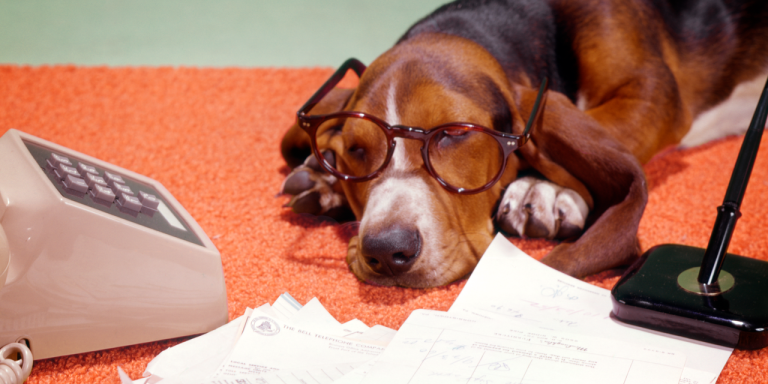
It was 2:23 p.m. on a Wednesday, and I had shit to do. All my brain wanted was to work, but all my body wanted—desperately, infuriatingly—was to shut down. My eyelids drooped. My shoulders slumped. Halfway through transcribing a quote, my fingers stopped typing, and I slipped into a state of lethargy.
It happens to me all the time: Smack in the middle of the afternoon, right when I want to be at my most productive, I get debilitatingly tired. That sudden mid-day bout of sleepiness, sometimes referred to as the “post-lunch dip,”1 descends upon me like a specter, hell-bent on making work impossible and throwing my plans for the afternoon into disarray. Why must this wretched, somnolent beast visit me day after day? And why does it always show up at the most inopportune time: somewhere between 1 p.m. and 4 p.m., when I need to be operating at maximum capacity?
To get a better understanding of where my sudden-onset tiredness comes from, and for a few tips on banishing it from my life forever, I called up two experts on the science of sleep: Hans Van Dongen, PhD, the director of the Sleep and Performance Research Center at Washington State University; and Kathryn Reid, PhD, a research professor of neurology at Northwestern Medicine. If you, too, regularly get overwhelmed by afternoon grogginess, take heart: There are solutions to our terrible, no-good, very bad problem. And they won’t cost you a cent.
Why do I suddenly feel major tiredness in the afternoon?
As it turns out, the “post-lunch dip” is a bit of a misnomer. “For the longest time, we thought it was food-related,” Dr. Van Dongen says. “But that’s actually not likely the cause at all.” The real explanation behind the most common cause is rooted in two biological phenomena, which you can think of, essentially, as two little machines whirring away inside your body: your homeostatic sleep drive, and your circadian rhythm.
Your homeostatic sleep drive is basically your urge to sleep, according to the Centers for Disease Control and Prevention (CDC). Over the course of the day, it goes up and up, reaching its peak around your bedtime, when you’re at your sleepiest. If it was the only thing that controlled our sleep, “We’d fall asleep like cats,” Dr. Reid says: Whenever your homeostatic sleep drive reached a certain threshold, you’d just pass out.
But your circadian rhythm keeps that from happening. As your homeostatic sleep drive increases throughout the day, your circadian rhythm—something like your body’s internal clock, which wants you up, alert, and productive all day long—counters your mounting tiredness to provide alertness and wakefulness. Those hormones fight against your urge to sleep until bedtime. Then, your body releases melatonin to reduce your wakefulness so you can get some rest.
“The idea is that the two sort of cancel each other out, so that you have a stable level of alertness all through the day,” Dr. Van Dongen says. “And then in the evening, as you continue to build up that pressure for sleep from your homeostatic process, the circadian system pulls back its pressure for wakefulness, and that’s what you experience as the sleepiness you get when it’s time to go to bed.”